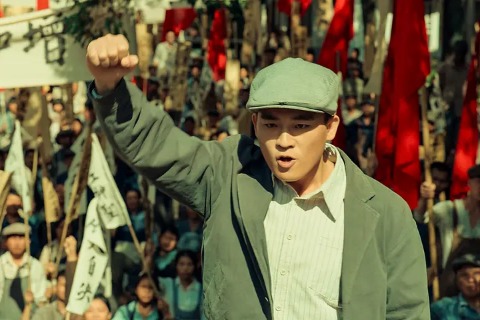By Li Li, All Media Reporter, Yangcheng Evening News
As the people of the whole country celebrate the 100th anniversary of the founding of the Communist Party of China, the movie “1921” focusing on the stories before and after the first National Congress of the Communist Party of China is being screened in theaters. The film was released for 6 days, and it ranked first in the single-day box office chart every day. As of 15:00 on July 7, the box office of “1921” was 344 million yuan.
Ultimate movie poster
Due to the particularity of the film’s subject matter, many viewers have high expectations for “1921”. At present, the film has scored 9.5 and 9.3 on the movie ticketing platforms Maoyan and Taopiao, respectively, indicating that the public is relatively satisfied with it. However, its Douban score of 6.7 points indicates that in the hearts of movie fans, the artistic quality of the film still has room for improvement. Based on the evaluation of the audience, the poetic and passionate youthful narrative method of “1921” is most appreciated by the audience, but the film is difficult to deal with more characters and clues perfectly in the two-hour movie space, which is the most regrettable point.
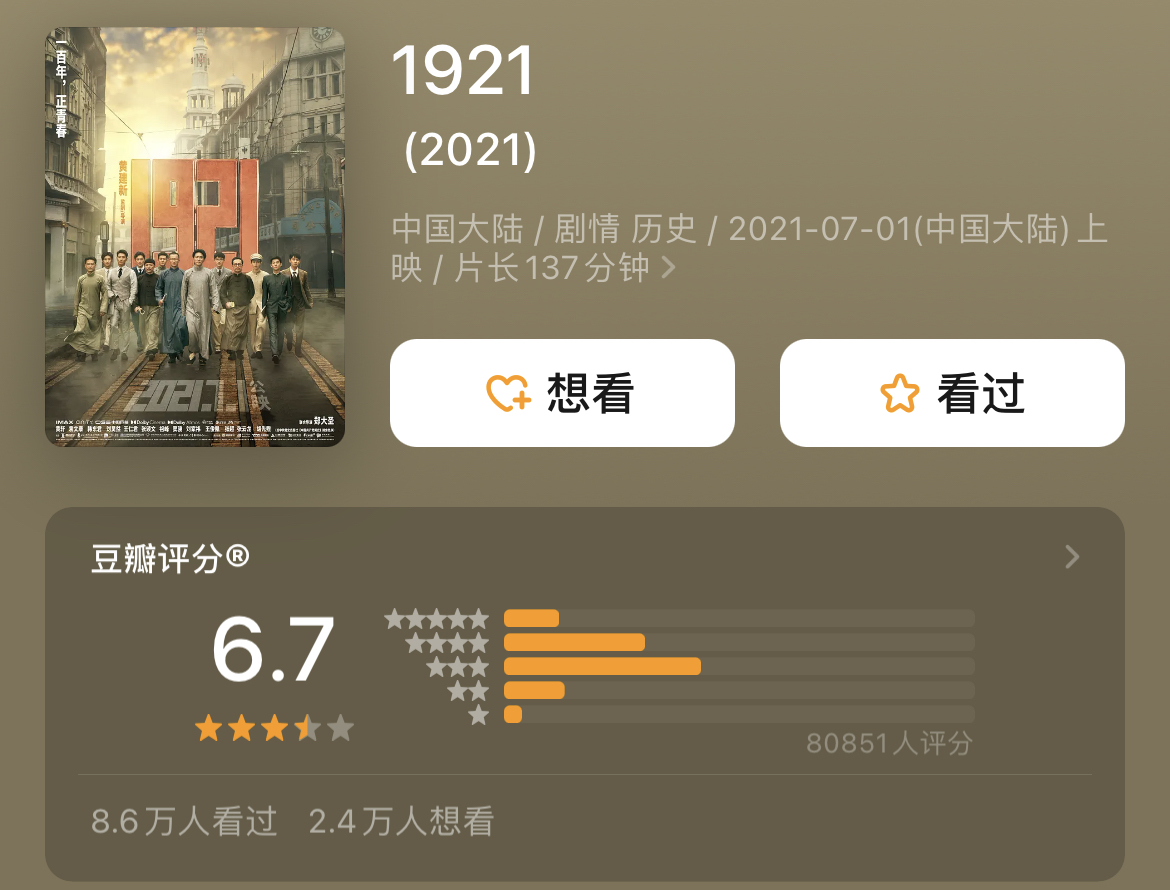
Video’s current Douban rating
Multi-line narratives are mixed
In the “A Brief History of the Communist Party of China” jointly published by People’s Publishing House and the Chinese Communist Party History Publishing House, there is a section devoted to the first National Congress of the Communist Party of China. One sentence mentioned: “Due to the attention of spies and patrols in the French Concession, the last day of the meeting was transferred to a cruise ship on Nanhu Lake in Jiaxing, Zhejiang.” Behind the seemingly plain narration, how many hidden historical stories are hidden? The movie “1921” answers this question.
As the producer and director of “The Founding of the Country”, “The Founding of the Party” and “The Founding of the Army”, Huang Jianxin also took the path of grand narrative when he directed “1921”. Compared with the “Trilogy of Building Characters”, the clues of “1921” are more complicated. The film begins with the establishment of a party agreement between Chen Duxiu and Li Dazhao in “Southern Chen and North Li”, and then “division of troops” in a narrative, trying to portray the intricate social group portraits of the early 20th century: Li Da and his wife in Shanghai and rushing from all over the country. Revolutionaries who came to Shanghai, the Communist International representative Ma Lin from Austria, the early Japanese communist Eizo Kondo, who was followed by the Special High School of the Japanese Metropolitan Police Department, and other key international figures, as well as Huang Jinrong and the French Concession Police Department obstructed the establishment of the party. Counter-revolutionary forces. In addition, the film also interspersed with the turbulent revolutionary events all over China at that time.
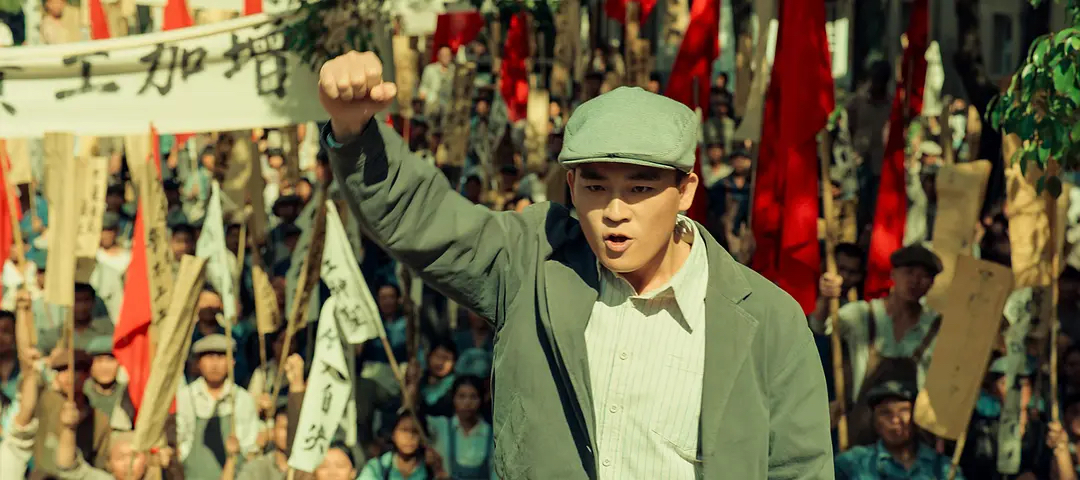
Workers’ strike scene shown in the film
For multi-line narratives, the audience’s feedback was mixed, and the stories of several international figures were particularly controversial. From a creative point of view, this broadened the pattern of “1921” and made the film different from other works of similar themes. Film producer and director Huang Jianxin and producer Ren Ningdu once mentioned that when the crew unearthed files about the Communist International and the Japanese Metropolitan Police Department in foreign archives, they were like treasures. The Communist International narrative line and the Japanese spy narrative line, together with the Shanghai power line represented by Huang Jinrong, give the film a thrilling action spy war element. This has indeed made many viewers suffer. Just as Douban netizen “Lunar C.” said: “I have seen too many scenes of drag racing, but it is the first time to watch a classic car racing in the Shanghai Concession of the Republic of China. The production is really attentive.” But on the other hand, the multi-line narrative also It is easy to appear rushed and messy, and the length of the film is limited, it is easy to have some clues that are not complete enough, some characters are not full enough, and the editing is too fragmented to cause the audience to play. Judging from Douban Criticism, the story lines of “Southern Chen Beili”, Mao Zedong, the Communist International and the Japanese Spy Line, all have audiences who think they are not fully developed.
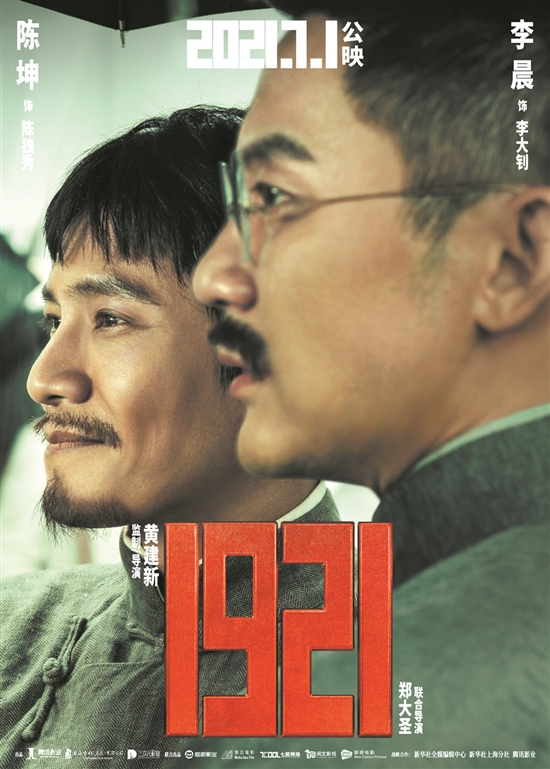
Chen Kun and Li Chen as “Southern Chen and North Li”
However, as a work that presents the beginning and end of the CCP’s major convocation in a panoramic manner, “1921” is still worthy of recognition. The famous director Wu Ershan believes that the film “converges many complex characters, events, and scenes into a full-fledged movie, turning those abstract words we see in history textbooks into very specific and vivid characters and stories. “, extremely difficult.
Youth style resonates
Before “1921” was released, many viewers felt the youthful passion of the film from the ultimate poster. On the poster, some of the 13 major representatives of the Chinese Communist Party were dressed in mandarins, some in suits, and some in student uniforms, but their eyes were equally firm and full of optimism about the prospects of the revolution. Director Huang Jianxin has stated many times that the original intention of “1921” was to “show the ideals, beliefs, and willpower of a group of young people 100 years ago, so that they can establish contact with contemporary young people.” Producer Ren Ning also pointed out that the power of “1921” lies in youth: “What kind of youth is the most meaningful? The pioneers 100 years ago told us.”
When the concept of youthfulness runs through the creation, the characters in “1921” appear to be less “restrained” and less “mature”. Chen Duxiu, played by Chen Kun, was very arrogant from the moment he appeared on the stage. Although he was jailed several times, he still uttered the rhetoric of “The warlord wants me to die, I want Chinese life”. Li Dazhao, played by Li Chen, has a more restrained personality, but when he said that “our mission will begin”, the twinkling light in his eyes revealed his equally excited heart. Yang Kaihui, played by Zhou Ye, reveals his children’s mood when he bids farewell to Mao Zedong, which is the same as that of young people who are passionately in love today. Mao Zedong, played by Wang Renjun, is also full of youthful spirit. There is a plot in the film: Mao Zedong, who has just moved from Changsha to Shanghai, feels that the Chinese have no place on his land when he first went to the concession; in order to dissolve his inner depression, he Running in Shanghai late at night, the pace gets lighter and lighter.
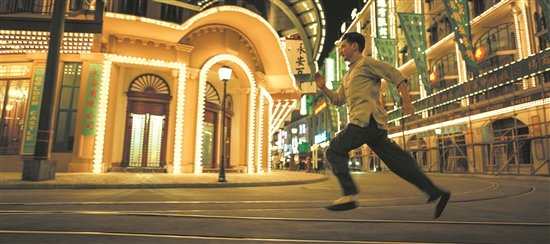
Mao Zedong, played by Wang Renjun, runs on the streets of Shanghai
The scene where Li Da Wang Huiwu and his wife chatted on the roof was also appreciated by the audience. Li Da, played by Huang Xuan, discovered that the match in his hand was made in Japan when lighting the cigarette. He not only sighed: “It’s such a big country, we don’t even have a single kind of fire. It’s so sad.” Wang Huiwu, played by Ni Ni, replied softly but firmly: “Already. It’s beginning to change.” The two looked at each other for a long time, and they sang the “Internationale” softly together…
“Through the big screen, the audience has truly entered the life and spiritual world of these young people who founded the party. This is the first time.” Huang Jianxin said that in the past, “The Great Cause of Party Building” and other movies have never fully demonstrated the CCP because of limited space. The state of the meeting and a large group of representatives said, “Their names are dazzling today, but their state at the time is actually the same as that of young people now. For example, Mao Zedong came to Shanghai from Changsha with ambition, working in the laundry room and saving money to go abroad. Studying abroad; not long after Li Da and Wang Huiwu were newly married, they lived together in a small house less than 10 square meters, and they were like-minded and worked together.”
[Secret behind the scenes]
Wang Renjun plays Mao Zedong, practicing hard running
Wang Renjun, who played Mao Zedong in the film, played the 36-year-old Mao Zedong in the movie “Gutian Bugle” released in 2019. This time, playing the 28-year-old Mao Zedong in “1921”, Wang Renjun believes that how to perform the differences between characters of different ages is still a big challenge.
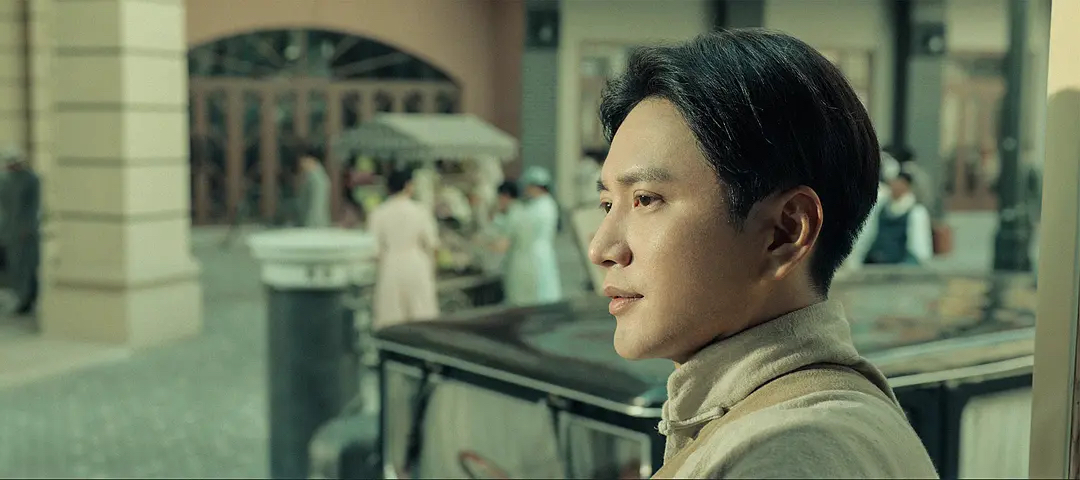
Wang Renjun plays the young Mao Zedong
In 1920, Mao Zedong came to Shanghai, renting with a few like-minded friends to experience work-study life. “Each person only spends 3 yuan a month, and he often eats broad beans, boiled rice and vegetable tofu soup.” But he will also save money to buy progressive magazines, continue to study Marxist ideas, and explore where China should go. Wang Renjun grasped these details in the performance, showing the true temperament and life-oriented side of young Mao Zedong. For the running scene in the film, he insisted on running in the morning and at night from two months before he joined the crew, often running until his clothes were soaked with sweat. In the end, Huang Jianxin was full of praise for Wang Renjun’s running shots, praising his running stance for his spirited spirit and ran out of the character’s spirit.
Huang Xuan Ni Ni Rooftop Play Impromptu
One of the main perspectives in “1921” is Li Da and Wang Huiwu’s couple. Li Da participated in the preparation and convening of the first National Congress of the Communist Party of China. During this period, he met Wang Huiwu, who worked as a secretary in the Shanghai Chinese Women’s Federation. Two like-minded young people gradually became in love and formed a relationship. Couple. Behind the successful closing of the First National Congress of the Communist Party of China, Wang Huiwu played a vital role. Before the opening of the conference, she was responsible for arranging the board and lodging issues of the delegates from all over the country; after the delegates arrived, she was responsible for the security work outside the conference room under the name of “Cooling the cool”; at the critical moment of the transfer of the conference venue, she raised the issue. Jiaxing Nanhu is an important suggestion to continue the meeting; during the Nanhu meeting, she sat on the bow and guarded the delegates in the cabin vigilantly to ensure the smooth progress of the meeting.
Huang Xuan and Ni Ni, who played the couple, were praised by many audiences for their tacit performance. Although it is the first time the two have collaborated in a movie, they are friends who have known each other for many years. Huang Xuan said: “She helps me tie a button sometimes, it’s very natural.” Even Huang Jianxin couldn’t help but sigh: “You look like a pair of CPs now.” The highly praised rooftop scene between the two , Part of it comes from improvisation.
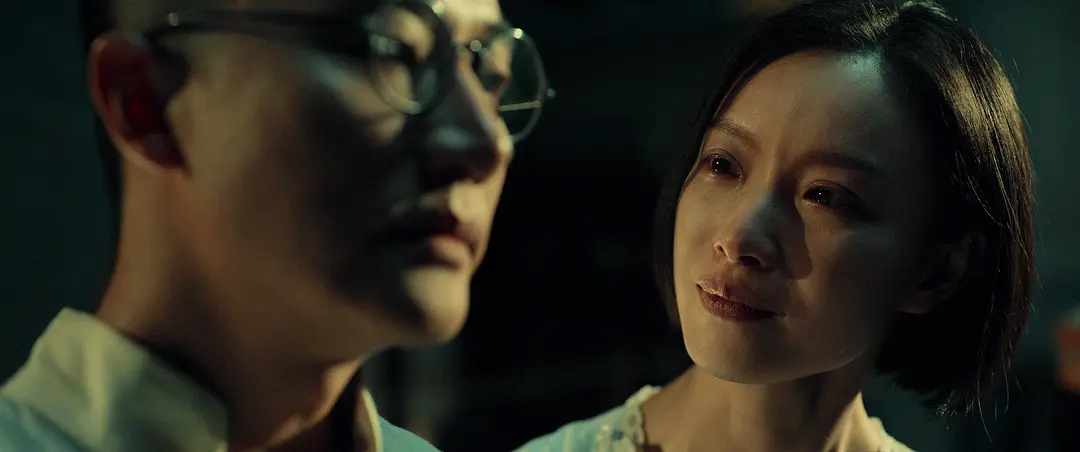
Li Da Wang Huiwu and his wife played by Huang Xuan Ni Ni talked on the roof
Yuan Wenkang handed in the application for joining the party
Many young actors said that starring in “1921” is like taking a vivid history lesson. They learn while performing, and the revolutionary spirit of the characters makes everyone experience a spiritual baptism. Huang Xuan said that he will remember this history in the film, “We must know how our country and our nation came about in the past century.” Han Dongjun remembers the scene where the delegates sang the “Internationale” together, “As long as the melody plays, I will recall our “1921” and our ancestors who were full of youth, passion and blood.” Zu Feng said: “Huang Xuan and I played “The Great Cause of Party Building” ten years ago, and now we are playing “1921”. Ten years later, there may be other people playing movies of the same theme. This is the inheritance of filmmakers from generation to generation. Huang Jianxin said that this is one of his original intentions for making this work: “Although “1921” is a historical theme, it has a strong connection with the present. We hope that through artistic creation, we will give the actors a chance to look back at their original intentions.”
After the filming of “1921”, some staff members submitted applications for joining the party, and Yuan Wenkang was also one of them. He said that although he is not yet a party member, he will always demand himself according to the standards of a party member, and assume the responsibilities and obligations of a literary and art worker. He was very grateful for the journey of meeting Li Hanjun in the movie, “Take off the costume, and there is an extra mission in life”.
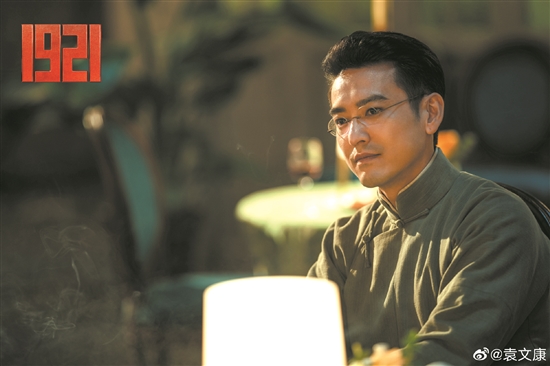
Yuan Wenkang plays Li Hanjun
The selection criteria is “there is light in the eyes”
In “1921”, there are more than one hundred cosplayers with names and surnames, and many of them are powerful and idol groups familiar to the audience. What are the casting criteria for the film? Huang Jianxin revealed that since the average age of a representative of the Communist Party of China is 28 years old, in addition to the basic characteristics of historical figures, young actors of similar age are also specially selected for casting. He believes: “There is an ideal in the heart, and there is light in the eyes. The light in the eyes of teenagers can only be radiated from the heart of their peers.”
In the end, Liu Haoran, who had been nominated for the “Best Actor” at the Hundred Flowers Award at the age of 21, and Wang Junkai, who won the “New Talent Award” of the China Film and Performing Arts Society at the age of 20, left a deep impression on many hits at a young age. Many of the outstanding actors of the “post-95” and “post-00” actors such as Hu Xianxu and Liu Jiayi were selected into the crew.
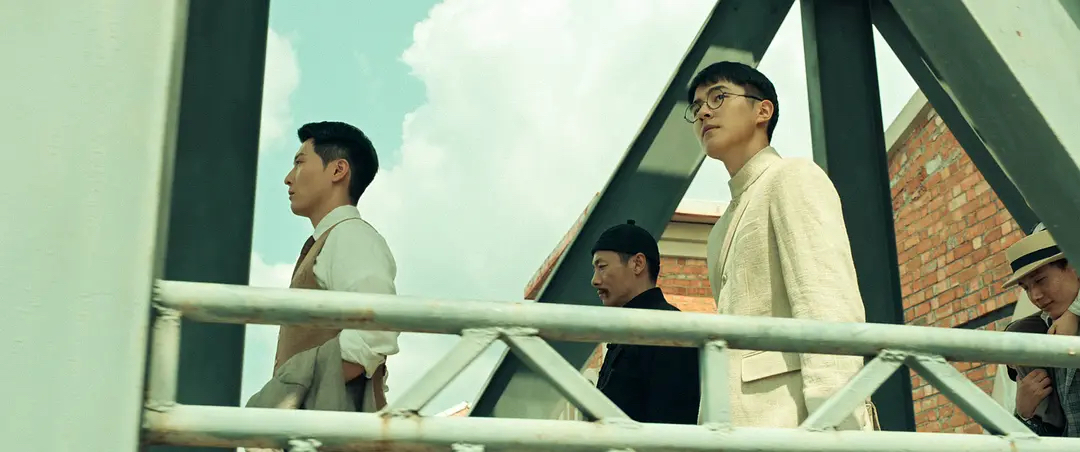
Liu Haoran and other young actors joined
Liu Haoran loses weight, Ni Ni cuts her hair short
In order to interpret the ancestors in flesh and blood, the young actors in “1921” did their homework. In addition to reading historical materials, Wang Junkai, who plays Deng Enming, will hold the screenwriter Yu Xi to discuss the details of the characters during the makeup setting; Hu Xianxu noticed that Bao Huiseng was a reporter, so he proposed to carry his notebook and pen with him and wear a clean suit every day.
In order to be more similar to the characters in form, both Liu Haoran and Hu Xianxu performed weight reduction and shaping. Many actors such as Song Yi and Zhao Lusi took language lessons in advance to meet the role prototype; Ni Ni cut off her long hair that had been left for many years, and this was the first time she had cut her ears and short hair in 9 years in the industry.
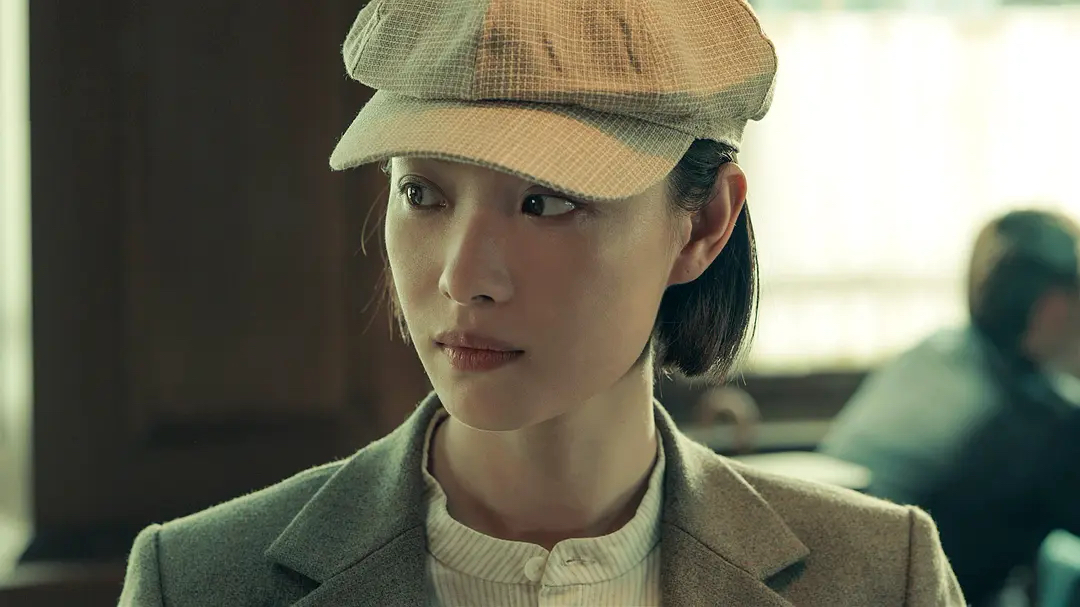
Ni Ni cuts short hair for the character
Wang Junkai Guan Heiwu before the torture play
Several sacrifice scenes in the film shocked the audience. Zhou, who played Yang Kaihui, was also in the sacrifice scene. In order to be realistic, he fell to the ground continuously. After a few shots, several sets of costumes prepared were blown through. Yuan Wenkang, who played Li Hanjun, was shot through when he was shot. But he didn’t say a word, and it was not until the end of the filming that the staff found that his body was full of bruises.
Wang Junkai’s performance also surprised many fans. He played the scene of Deng Enming who was tortured before his sacrifice. Many netizens said that they “feel the pain across the screen.” It is reported that in order to perform well in the scene of torture, Wang Junkai not only reduced his sleep and food intake, but also locked himself in a small dark room long in advance to brew his emotions.
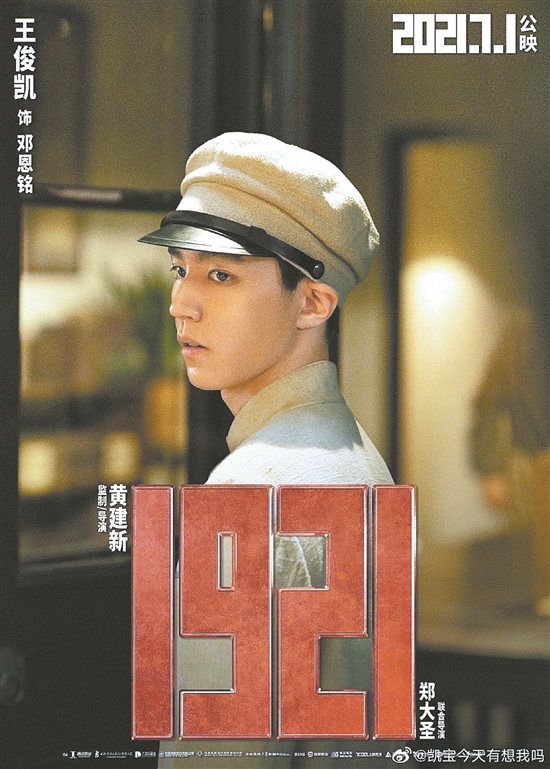
Wang Junkai plays Deng Enming
Cao Yu hand-held camera to take a close-up shot
The director of photography for “1921” is the famous photographer Cao Yu. In order to present the youth passion of a representative of the Communist Party of China, he pursues dynamic rhythm and poetry in rhythm; in order to narrow the distance between the audience and history, he chases the focus figures in the group portraits with hand-held photography; in order to pursue natural light, he and the entire crew rush to compete A scene was filmed in 20 minutes; in order to restore “the most beautiful Shanghai”, he asked the crew to decorate a street in Hengdian with tens of thousands of light bulbs… With his efforts, “1921” finally presented a lighter picture , Breaking through the serious and solemn lens language of similar subjects in the past.
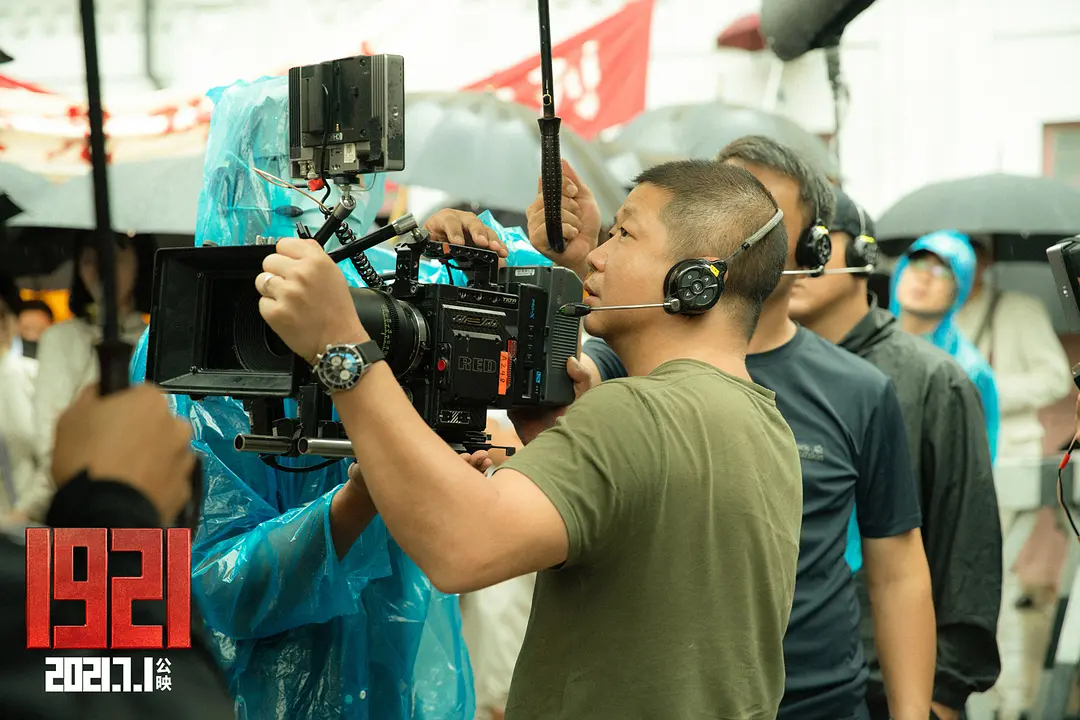
Director of Photography Cao Yu on the set
It is worth mentioning that Cao Yu often rushed into the performance scene to take close-up shots when the actors’ emotions reached a climax. This is also the source of many “immersive” images in “1921”. The audience can follow the footage of the film to enter a major scene of the Communist Party of China, and experience the moment of party formation.
Original title: “1921” youthful narrative praised, revealing 7 behind-the-scenes stories in the film
【Editor in charge: Xu Ziming】
